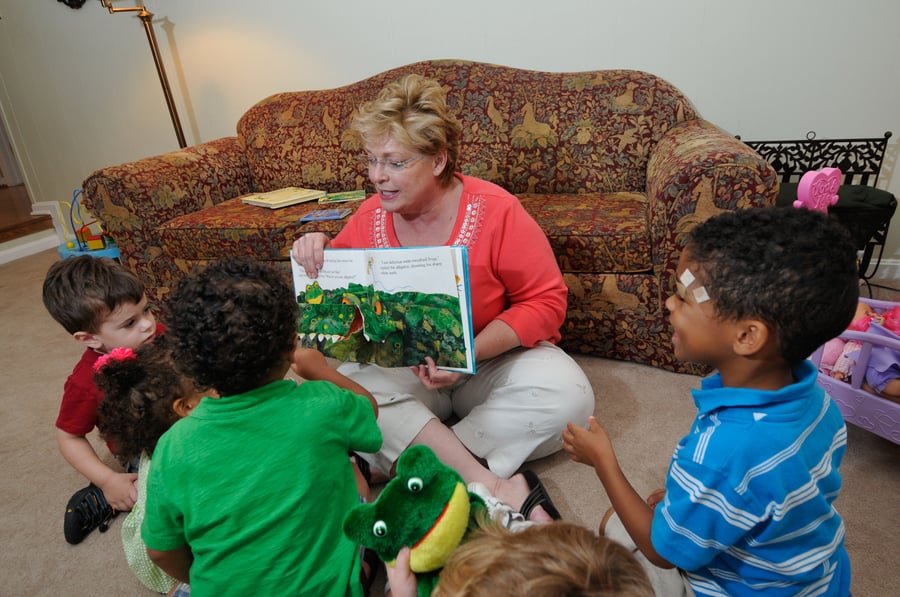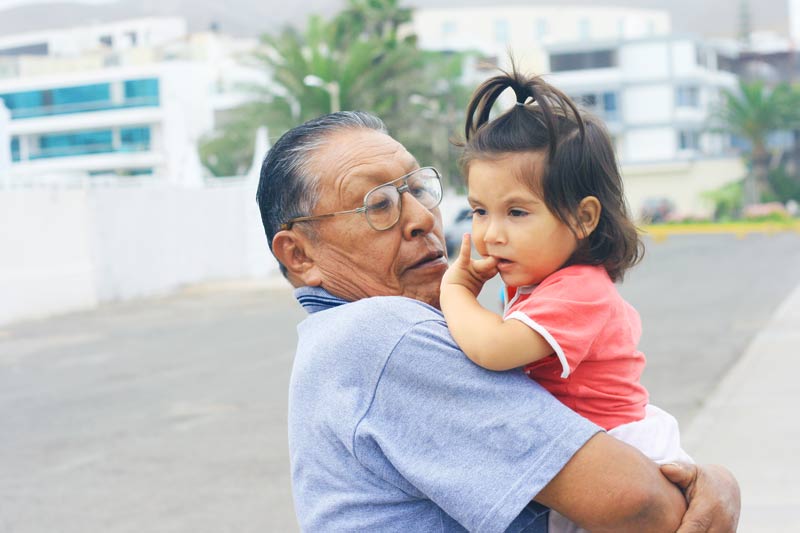
Imagine being four-years-old and losing your favorite stuffed animal and familiar routines because your home was destroyed by a flood. You watch your parents cry and keep asking, “When can we go home? I want my stuffed tiger.” You do not exactly understand what is happening, but you are sad and scared.
These experiences and feelings are common for children impacted by natural disasters. Experiencing a natural disaster—such as a flood, tornado, or hurricane—can be very stressful for young children. Like adults, children may feel unsafe, loss of control, sadness over damage to their home and/or possessions, and stress over changes to their regular routines and activities. Children will respond in different ways depending upon how much they were impacted by the natural disaster.
A parent or close adult can support children in understanding these feelings and teach children strategies to foster resilience. It is important for these adults to also understand their own feelings and stress as children are watching and learning from adult responses too.
One effective way to support children’s understanding and use of positive coping strategies is storybook reading.
The Read for Resilience Program
In response to flooding and severe blizzards that impacted many Nebraskan communities in 2019, our University of Nebraska Learning Child team developed a storybook reading program to help caregivers (e.g., parents, early childhood teachers) support children after a stressful event. We created a program that uses accessible strategies that are fairly easy for caregivers to use. We identified children’s books that may support children’s resilience and help them understand their feelings. We also developed storybook guides to go along with each book. These guides provide prompts or questions for caregivers to use while reading the book and activities to do with children. The activities may allow children to talk about their feelings, to express their feelings in different ways (e.g., through art or movement), and to be more aware of how their feelings affect their bodies. The discussion questions and activities can provide information to caregivers about children’s understanding and reactions to the events in their lives and provide children with positive coping strategies. For example, the four-year-old mentioned in the beginning may benefit from their caregiver using our storybook guide for the book Wemberly Worried which addresses the topic of worry and anxiety in a relatable, child-friendly manner.
How Does Storybook Reading Support Children’s Resilience and Coping?
- Shared Language. Shared reading improves children’s vocabulary. When caregivers engage children in a book about coping, emotions, or facing a difficult situation, they are helping them learn new ways to talk about their own feelings. This creates a shared language to name and talk about how each person is feeling.
- Children can often see themselves reflected in the story. This helps them realize that they are not alone and that they are not the first to go through a difficult experience. Reading with a caring adult also reinforces the idea that they are valued and that their feelings are valid.
How Can Caregivers Use Storybook Reading to Support Children?
- Find books that are age-appropriate. Some books talk about feelings in a way that younger children are not developmentally ready to understand. Other books use simplified language or represent feelings in different ways that younger children may be able to understand better.
- Find books that are engaging and that children can relate to. Children will see themselves reflected in some characters or storylines more than others.
- Be willing to try things out of their comfort zone. Caregivers might not have experience with mindfulness or other suggested activities that help children process their feelings. Being open-minded may help both child and caregiver find a new activity that they enjoy and find helpful.
What’s Next?
Both parents and early childhood teachers have enjoyed the books and the accompanying storybook guides. We are excited to expand our Read for Resilience program to support young children’s emotional resilience by including storybooks that introduce topics such as immigration, being a refugee, and death of a pet. As Fred Rogers stated so well, “Children have very deep feelings just the way parents do, just the way everybody does, and our striving to understand those feelings and to better respond to them is what I feel is the most important task in our world.” Our Read for Resilience program strives to do just that.
More information about the Read for Resilience program can be found at https://child.unl.edu/read4resilience.
 Holly Hatton-Bowers (hattonb@unl.edu): Dr. Hatton-Bowers is an assistant professor in Child, Youth, and Family Studies and an Early Childhood Extension Specialist at the University of Nebraska-Lincoln. Hatton-Bowers’s primary scholarly interests are in the area of parenting and early care and education, with an emphasis on promoting and enhancing the well-being of caregivers and young children’s social-emotional development. She is active in translating and disseminating current research findings in the areas of caregiving and health in early childhood using an interdisciplinary approach. Hatton-Bowers is an emerging leader on topics related to early childhood professional well-being; particularly in enhancing the emotional well-being of early care and education teachers.
Holly Hatton-Bowers (hattonb@unl.edu): Dr. Hatton-Bowers is an assistant professor in Child, Youth, and Family Studies and an Early Childhood Extension Specialist at the University of Nebraska-Lincoln. Hatton-Bowers’s primary scholarly interests are in the area of parenting and early care and education, with an emphasis on promoting and enhancing the well-being of caregivers and young children’s social-emotional development. She is active in translating and disseminating current research findings in the areas of caregiving and health in early childhood using an interdisciplinary approach. Hatton-Bowers is an emerging leader on topics related to early childhood professional well-being; particularly in enhancing the emotional well-being of early care and education teachers.
 Amy Napoli (amynapoli@unl.edu): Dr. Napoli is an assistant professor in Child, Youth, and Family Studies and an Early Childhood Extension Specialist at the University of Nebraska-Lincoln. Her work focuses on supporting parents and early childhood educators in promoting young children’s math, literacy, and school readiness skills.
Amy Napoli (amynapoli@unl.edu): Dr. Napoli is an assistant professor in Child, Youth, and Family Studies and an Early Childhood Extension Specialist at the University of Nebraska-Lincoln. Her work focuses on supporting parents and early childhood educators in promoting young children’s math, literacy, and school readiness skills.






